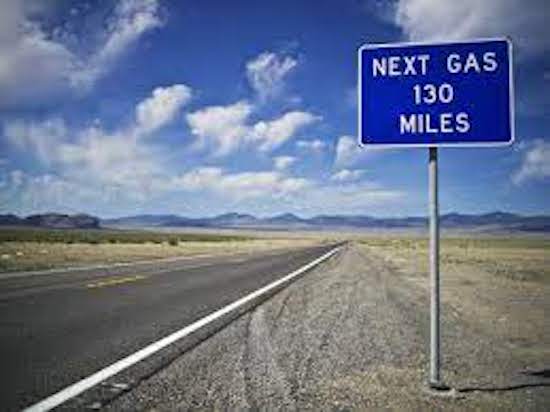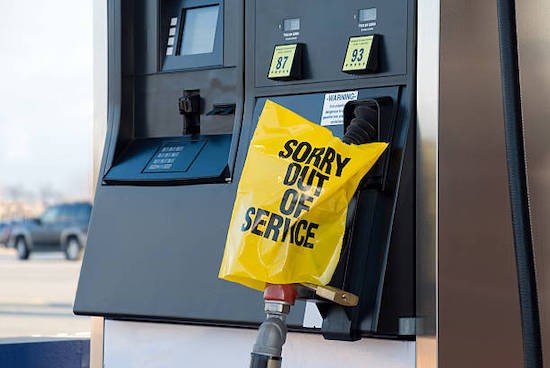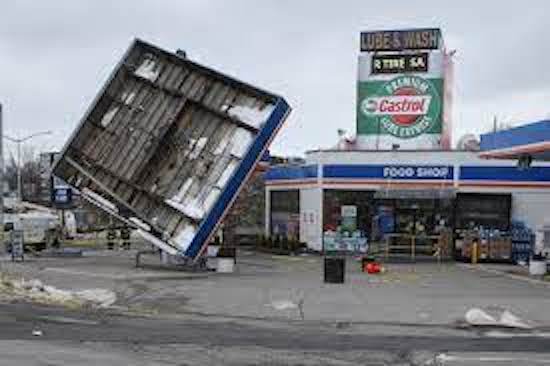Defining the Concept of Buying a Gas Station
Buying a gas station, much like any other small business acquisition, involves the purchase of an already running gas station business. These businesses predominantly involve the selling of fuel to motorists, but often also include supplementary services such as auto repairs, retail business, and food shops within the premises.
The attractiveness of purchasing gas stations comes from their business model, which guarantees customers. The demand for fuel is a staple requirement and not a luxury. As long as people drive cars, there will be a need for gasoline and other services that gas stations provide.
Key Factors to Look For When Purchasing a Gas Station
When you're considering acquiring a particular gas station, you need to look at several factors. These include the location, reputation, and financials of the business.
Location
The location of the gas station being bought is paramount. A well-placed gas station on a busy road will attract more customers compared to one situated in a less trafficked area. The higher the traffic, the higher the chances of making sales. Look at factors such as proximity to highways, the density of the population in the immediate area, and the competition around the site.

Reputation
Reputation is another factor that cannot be neglected for gas stations. A good standing reputation means customers trust the establishment, and they are more likely to be loyal patrons. Often times there are many gas stations within a 1 mile radius, so when customers are looking for gas, they are influenced by psychological intuitions on which gas stations that they prefer. A branded gas station or any gas station franchise will always likely have a reputation that you can you research online. To assess any gas station's reputation, you can look at reviews and ratings on online platforms, interact with locals, and engage in conversations with regular clients of the station. Keep in mind that online ratings for gas stations tend to be lower than most other businesses.
Financials
The financial health of the gas station you plan to purchase needs serious consideration. It would be best if you looked at the balance sheets, profit and loss statements, and cash flow records. Furthermore, find out about their debts, liabilities, and if there are any existing legal issues related to the business. Evaluating the financials can help you get a better understanding of if the business you are trying to buy is worth the asking price. Read our guide on how to value a small to medium business to learn more.
What to Avoid When Buying a Gas Station
While the prospect of buying a gas station might be attractive, it is crucial to understand what red flags could potentially spell disaster for your investment.
Poor Reputation
Reputation is a double-edged sword. As much as a good reputation can boost your business, a bad one can break it. If the gas station you're eyeing has a history of bad service, poor quality products, or any other negativity surrounding it, it might be a poisoned chalice. A bad reputation might drive away potential and existing customers, negatively impacting your returns on investments. For example, if you see that a gas station often has faulty gas pumps, it will be hard to build a loyal customer base because customers start to lose trust in the brand.

Mismanaged Finances
A gas station with poorly managed finances is a hazard you should avoid. Mismanaged finances might be evidenced by irregularities in financial statements, unexplained expenses, and overdrawn accounts. The repercussions of acquiring such a business include inherited debt, potential legal issues, and compromised cash flow. It's best to look for successful gas stations that will not require you to take out another business loan just to operate. A gas station investment, like any other business investment, should not be a fixer-upper.
High Rent
If the gas station operates on a leased property, beware of high rental costs. High costs will consume a significant portion of the profits, making it harder for you to realize substantial returns on your investment. You should consider if the rents are sustainable and if they align with your financial projections for the future.
By observing these factors, you can make an informed decision when purchasing a gas station, offering you a higher chance of success in your new business venture.
Consider the Cost of Maintenance and Upgrades
Another crucial aspect that often goes unnoticed is acknowledging the station's maintenance level, and factoring in the cost of potential upgrades. The attractive price tag might be due to the previous owner's neglect in maintaining the pumps, canopy, store, and other facilities. It is advisable to consider these costs when deciding whether or not to purchase the business. When going down your due diligence checklist, make sure to physically inspect the location to see if there is anything that needs repair. Doing so could potentially give you more power in the sale price negotiation.

Alternatively, you can always look into starting a new gas station for your gas station investment, but this will come with its own upfront costs. We do not advise most people to do this especially if you have not owned a gas station before.
High Turnover Rates
A business with high employee turnover rates should raise eyebrows. These rates could signal underlying problems such as poor management or unsuitable working conditions. Since employees are the face of the business, continuous employee turnover can affect the gas station's reputation, customer service, and overall experience, negatively impacting the business's success.
Similarity to Convenience Stores
There's a definitive line that blurs when comparing gas stations to convenience stores, and it's easy to see why. In essence, both are consumer-driven businesses designed to cater to the customer's instant needs.

Shared Business Model
Gas stations and convenience stores share similar business models. Both depend heavily on location and high foot traffic for profitability. They also extend their services beyond their core offering; gas stations offer more than just fuel, just as convenience stores provide more than just retail products.
Supplementary Services
A considerable number of gas stations incorporate convenience stores within their premises, offering customers easy access to grocery items, toiletries, snacks, drinks, and other miscellaneous items. This alliance not only keeps customers within the business premises longer, ultimately leading to higher spending, but also serves as a one-stop-shop for many people, enhancing the convenience of both entities.
Supply and Demand
Both businesses rely heavily on supply and demand. They stock items that are in high demand, with pricing slightly higher due to the convenience they offer. This shared strategy is mainly due to both being convenience-driven businesses aiming to fulfill customer needs quickly.
Why are Gas Stations a Good Absentee Run Business Candidate
A key feature making gas stations an attractive investment is their capability to run smoothly without the owner being physically present round the clock, making them a top candidate for an absentee run business.
Reliable Staff and Management
Once you have trained staff and a trusted manager to handle operations, consider your work half done. With a good team in place, the business can operate productively without requiring the owner's constant attention.
Automated and Streamlined Operations
Most operations in a gas station - such as fueling and payments - can be automated, thereby reducing the need for manual supervision. Customers can pump gas and pay via an automated system. Similarly, the convenience store's systems can streamline inventory and reordering of items, reducing the workload on your shoulders.
Demand-Driven Business
The consistent demand for fuel and related services eliminates concerns regarding sales fluctuations. In essence, the business retains steady operation due to the stable demand for its products and services.
Potential for Ancillary Services
Further, many gas stations are co-located with a miniature convenience store or an adjoining restaurant, allowing for multiple revenue streams. These additional services can be independently operated, again providing scope for an absentee approach.
In conclusion, though significant upfront investment and initial personal involvement are necessary, gas stations provide a unique opportunity for running a successful absentee-owned business once operations are underway. Their potential for streamlined, automated operations and multiple revenue streams make them a worthwhile consideration for any potential investor looking for an absentee run business. With thorough planning and execution, a gas station can run lucratively while allowing you the freedom to explore other opportunities or simply enjoy the profits it generates.
Using a Broker for Purchase
While you can negotiate the purchasing process independently, it might be more insightful to use a broker's services. Hiring a professional broker familiar with the gas station market can help you successfully navigate the purchase process. A broker can aid you in pricing, negotiation, paperwork, and ensuring everything is legal and up to standard. Buy-side brokers, like sell-side brokers, are not free. This guide on business broker fees describes how fees are assessed and who pays them.
Conclusion: Key Takeaways in Buying Gas Stations
Small business acquisitions, particularly of a gas station, can be a flourishing investment if administered correctly. The key to success lies largely in thorough due diligence before purchasing. This process involves scrutinizing the business's location, its reputation, stating its financial well-being, and understanding the terms of rent if the property is leased.
Conversely, there are several tell-tale signs you should steer clear from a seemingly inviting investment opportunity. Beware of acquiring a gas station with a poor reputation, mismanaged finances, high rental costs, neglect of maintenance, or high employee turnovers.
Despite the intricate process and potential pitfalls, purchasing a gas station as a small business acquisition can be a highly profitable venture. This is particularly true if you approach the process with a meticulous eye, professional help, and an understanding of the commitment it requires.
In conclusion, while purchasing a gas station is unquestionably a significant investment, it also presents an excellent opportunity for steady revenue. Remember, thorough research and due diligence is your pathway to a successful acquisition! The intricacies might seem daunting, but with the right information and guidance, purchasing a gas station can become a worthwhile venture that fuels the journey of your entrepreneurship. Don't just dream about buying a gas station - with the right tools and knowledge, you can turn that dream into a reality!
Read more from our Industry-specific Buying Series:


